Our three course graduate microcredential brings together educators from 15 school districts in Oregon and Washington, allowing them to network and connect with individuals in their field all while equipping them with evidence-based practices that have been immediately integrated into their classrooms.
Faculty Highlights Across Our Courses
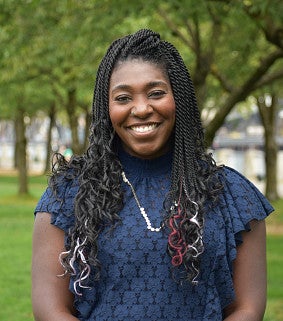
"Research tells us that having at least one positive relationship with a trusting adult can serve as a protective factor. It was incredible to witness a tangible shift in passionate and empathic educators as they learned theories relevant to developing and maintaining healthy relationships. This course follows the developmental trajectory of relationships across contexts, from infancy through secondary education. We supported the integration of theory from previous courses as educators acquired tangible skills to enhance cultivating and maintaining healthy and collaborative relationships with their students, families, and colleagues."
— Miriam White-Pedeaux, Clinical Assistant Professor, Child Behavioral Health
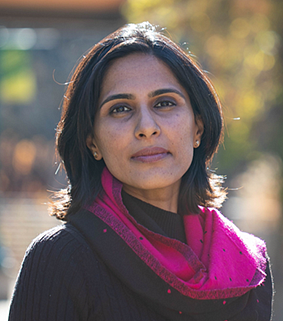
"We know from decades of research that when children are emotionally and behaviorally well regulated, they are better able to pay attention in class, play cooperatively with peers, and have positive relationships with teachers. Not only that, strong childhood self-regulation skills predict positive educational and health outcomes well into adulthood. The self-regulation course provided educators with information about the science of self-regulation development (for instance, how does lack of sleep or chronic stress impact children’s self-regulation) and the tools (i.e., evidence-based practices and programs) they could use in their classrooms to promote their students’ and their own self-regulation. When teachers themselves model strong self-regulation skills, and give students the opportunities to learn and practice these skills in a safe and trusting classroom environment, they lay the foundation for better school outcomes in the near term and improved health and well-being in the long term."
— Atika Khurana, Associate Professor, Counseling Psychology and Human Services
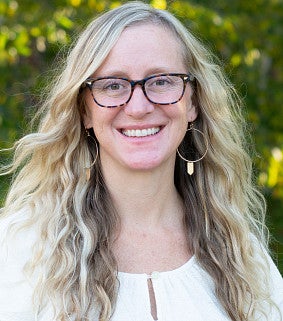
"The first course in the Ballmer Institute graduate-level three course sequence was designed to support educators in helping their students to develop strong self-regulation. Our goal with this class was to equip educators with a toolkit of evidence-based practices that could immediately be integrated into their classrooms. According to a report by the National Center for Education Statistics, more than 80% of US public schools report pandemic-related increases in student behavioral challenges. The need for training K-12 educators how to explicitly and intentionally strengthen self-regulation in their classrooms has come to the fore, and we hope our course can help to address this need."
— Sara Schmitt, Associate Professor, Special Education and Clinical Science
Hear From Our Students
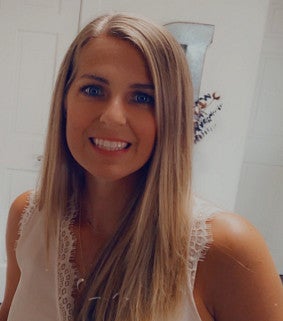
“In the three years I have been dean of students in Washougal, I have seen teachers running out of tools and support. Interventions that once worked are not enough to manage student behaviors impeding on classroom teaching and learning. I knew the opportunity to attend a graduate program focused on children’s behavioral health would give me more of the tools I need to make a positive impact on students today, and the Ballmer Institute’s course on developing and maintaining healthy relationships gives teachers the skills to manage tough relationships. It is an invaluable resource.”
— Erin Darling, Columbia River Gorge Elementary School dean of students
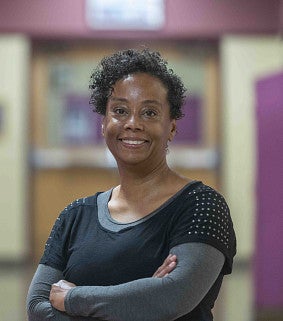
"I am a veteran teacher with 23 years of experience teaching middle school in Portland Public Schools. The professional development I received from the "Teaching self-regulation in childhood and adolescence” course was the best I have received in years and was exactly what I needed to energize my teaching and instruction. Class was enhanced by lively discussions and opportunities to collaborate with our peers, and I felt fully supported by the instructors in the class. We studied research-based strategies and learned to implement them in our classrooms, immediately. This class was quite impactful because I learned strategies that work with middle schoolers, and I could use some of the self-care strategies in my own life."
— Heather K. Siegfried, Ockley Green Middle School 6-7 Social Science
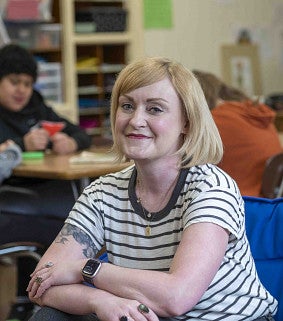
"As a Special Education Teacher (Learning Center) in my tenth year of supporting Title I and CSI/TSI middle schools, I am constantly looking for new and innovative ideas to support my caseload of students. What I walked away with from this class was so much more than I ever expected. Not only did the research-based practices presented in this course apply to every single student on my caseload, but they also greatly addressed the behaviors and needs of some of my most “at-risk” students in regard to their severe self-regulation and executive functioning challenges. Even more importantly, the content of this class was presented through both a culturally and trauma-informed lens that greatly matches the population of students I work with on a daily basis."
— Brenna Sheridan, dual MS in Special Education and Elementary Education

"As a school counselor, working in a dynamic environment, I have seen the effects poor mental health has on our students. I believe more than ever it is critical for our children to seek self-regulated adult role models in their academic environment. Having access to the Ballmer Institute for Children’s Behavioral Health graduate coursework class - Teaching Self-Regulation in Childhood and Adolescence - has prepared me to support and enrich the wellness of all my students."
— Adrian Calderon, school counselor for Lane Middle School, Portland
“In the course on trauma informed supports for children and adolescents, I was excited to learn about the latest best practices and newest research methods to help students experiencing trauma, adverse childhood experiences, and navigating home and school environments. The Ballmer Institute gives me hope for change and provides educators with a new skill set for current-day students and families. I’ve learned strategies for forming trusting relationships with students who have a difficult time trusting others, how to fully listen and understand a student’s needs, and how to stop students from being re-traumatized, along with an endless list of critical skills for supporting students.”
— Sara Elmore, Hathaway Elementary School fifth-grade teacher
